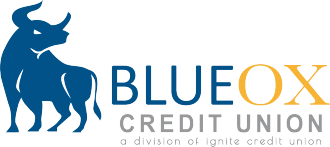top 10 cyber security tips

October is Cyber Security Month, and with the ability to practically carry our lives around in our pockets, it’s obvious that we live our lives digitally. Regardless of if you use your digital devices for work or for play – protecting your data is crucial. As we bring Cyber Security Month to a close, please check out these 10 tips to keep you and your family safe from digital scams or breaches.
types of scams
There are numerous ways that you can fall victim to a scam or security breach on your digital devices. It’s important to know their different techniques so that you can ensure you’re not an easy target! Check out the list below for just a few of the most popular scams you might come across.
phishing email scams
Scammers or “bad actors” use email or text messages to trick you into giving out your personal information to them. They may try to steal your bank account numbers, usernames, passwords, or even your Social Security number. If they’re successful in stealing this information, they could gain access to your email, bank, or other accounts and cause some serious damage. Usually, these scams will come across as someone pretending to be from a popular company. It could be your phone company asking you to pay a bill or your primary financial institution asking you to log into your Online Banking. Their main goal is to trick you into clicking on a link or an attachment, and when you do, they can gain access to your information.
nigerian scams
One of the oldest tricks in the book is the Nigerian Prince Email Scam. Typically, these emails come with someone overseas claiming to be royalty. This so-called prince lures you into their scam by offering a large sum of money if you partake in their “investment opportunity” by handing over your bank account numbers so they can “transfer money.” You may think this sounds silly - “How could anyone fall for that?” However, it turns out Americans lost over $703,000 in 2018 to these types of scams.
credit card scams
Credit card scams come in all shapes and sizes. They could come across as a charity opportunity, a chance to sign up for a credit card, or even a skimmer in an ATM. You can protect yourself from scams like these by checking any ATM card slots that you utilize for skimmers and being very careful about who you give your credit card information to.
romance scams
In this digital age, we now have so many apps and websites for online dating or socializing. Unfortunately, sometimes instead of finding love, one may find a scam on the other side of the screen. A romance scam is where someone creates a false profile and engages in a fake relationship. They then make up a story of some financial hardship as a way to sneak money from their victim. They could be asking for money to pay for a plane ticket or even medical expenses. The victim, who believes they’re in love, will transfer those funds over as a wire, unknowingly falling for their tricks.
Facebook impersonation scams
Have you ever seen a friend post on Facebook that they have been hacked, so don't respond to any messages from them? Or maybe you’ve even received a Facebook message from a friend that you rarely talk to, wanting to “catch up” or stating they saw some crazy images of you online, with a message to “click here to see them.” These are similar to phishing scams as the bad actor usually attempts to get you to click on a link or attachment or apply to something and give out your personal information.
10 tips to keep you and your family safe
As you can see, there are many ways a scammer can steal your information, and there are new tactics being used every day. Take a look at these tips and tricks for keeping yourself, your work, and even your loved ones safe from scams and fraud.
1. read emails carefully
Do you know the sender? Do they usually send emails like this? Are there any obvious typos or spelling errors? Often times phishing emails coming from someone pretending to be companies like Netflix or your phone company will have odd grammar usage and spelling errors. These can be an immediate red flag.
top tip: Hover your cursor over any links to see the actual web address it would lead you to. If it’s not familiar, don’t click it!
2. keep your software up-to-date
Our computers and mobile devices are always coming out with new updates for their software. Making sure you’re on the most recent version of whatever software, web browser, or operating system you use is crucial to protecting against any online threats.
top tip: Set your digital devices up for automatic updates so you don’t miss out when new updates are released!
3. use strong passwords
Setting a strong password for your accounts can lessen your chances of getting hacked. Strong passwords consist of at least 8 characters, including special characters. Most websites will provide information about what is needed to make a strong password. Be sure to also keep your passwords updated. It's recommended to change your account passwords every three months.
top tip: Don’t use the same password for every account. If a hacker gains access to one of your accounts, they’ll most likely try that password for other accounts. Making every password different and unique decreases your chances of having multiple account breaches.
4. always use a secure internet connection
Make sure your internet connection is secure, especially when handling sites that require you to log in. Scammers can utilize unsecure internet connections to hack into your accounts. When using an unsecured connection, be very careful about the information being handled on your device.
top tip: When shopping online, make sure that the site has a secure checkout system. Oftentimes, the checkout screen will indicate the security of the page, but you can also look for “https” at the top of the screen in your search bar – the s stands for secure! If there’s no s, it’s not a secure webpage and could easily be hacked into.
5. back up your data
We can all be guilty of clicking the “remind me later” button when our digital devices recommend backing up our data. This step to digital security is often overlooked, but it is so crucial to keeping your information and documents safe. If you were to fall victim to ransomware or malware, the only way to restore your data and information on your digital device is to clear your systems and restore from the most recent backup.
6. check your bank accounts and your credit score often
Monitoring your accounts and credit reports on a regular basis will help you spot changes and fraud early on. The earlier you can spot this suspicious activity, the sooner you can get it resolved.
top tip: If you notice suspicious activity, you may place a credit freeze. This can stop fraudsters from continuing to pull your credit to apply for loans. Then you will set a PIN that only you know so that when you do need to pull your credit for a loan, that personal identification number can be used to gain access.
7. utilize two-factor authentication
Many sites and even social media platforms offer an extra layer of security by activating two-factor authentication. This could be a text sent to your personal phone number, a code that gets sent to the email on file, or even a fingerprint or facial recognition. This makes the process more difficult for hackers to get into your accounts and gives you a signal when your accounts may be getting breached.
8. be careful what you click on
When browsing around on the internet, be hyper-aware of the sites you visit and the links or buttons you click on. These links could be traps leading to an installation of malware or ransomware onto your device. Make sure to utilize websites that you know are safe and secure.
9. never leave your digital device unattended
Leaving your digital device unattended and unlocked is the easiest way for someone to steal your information. If you need to leave your computer or other digital devices for any reason, make sure to lock them so that no one can gain access easily. Be sure to lock or even shut down your digital devices when not in use.
10. stay educated on popular security threats and scams
The digital world is changing every day, and so are hackers and cyber security threats. It’s important that you keep yourself educated on the different techniques hackers are creating to steal your information and cause you harm.
BlueOx member security
At BlueOx Credit Union, we take the security of your information seriously. As our valued member, we want to provide you with information and helpful tips that you can use to protect your personal information. Click the button below to learn more about how we provide security to our members.
« Return to "BlueOx Blog"
